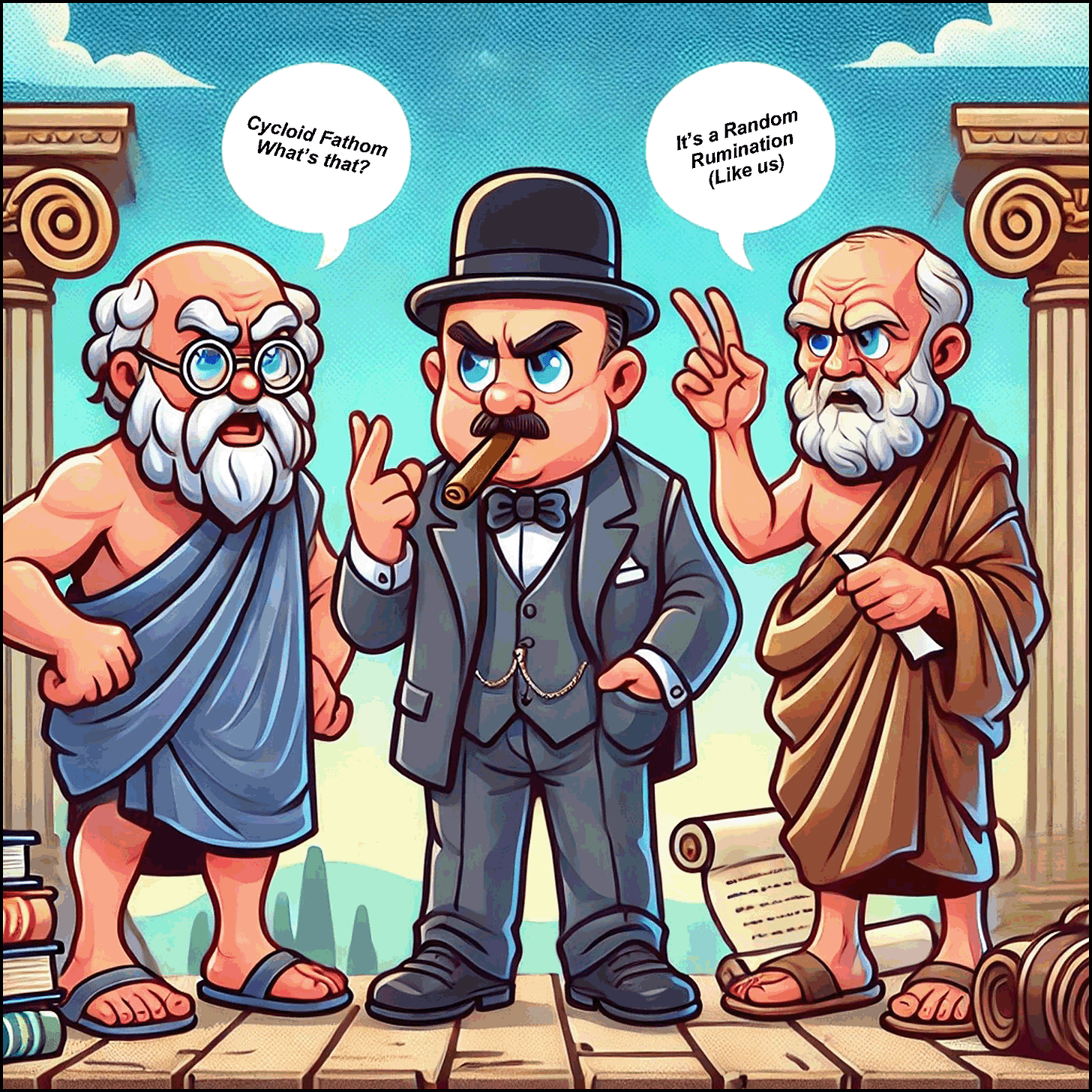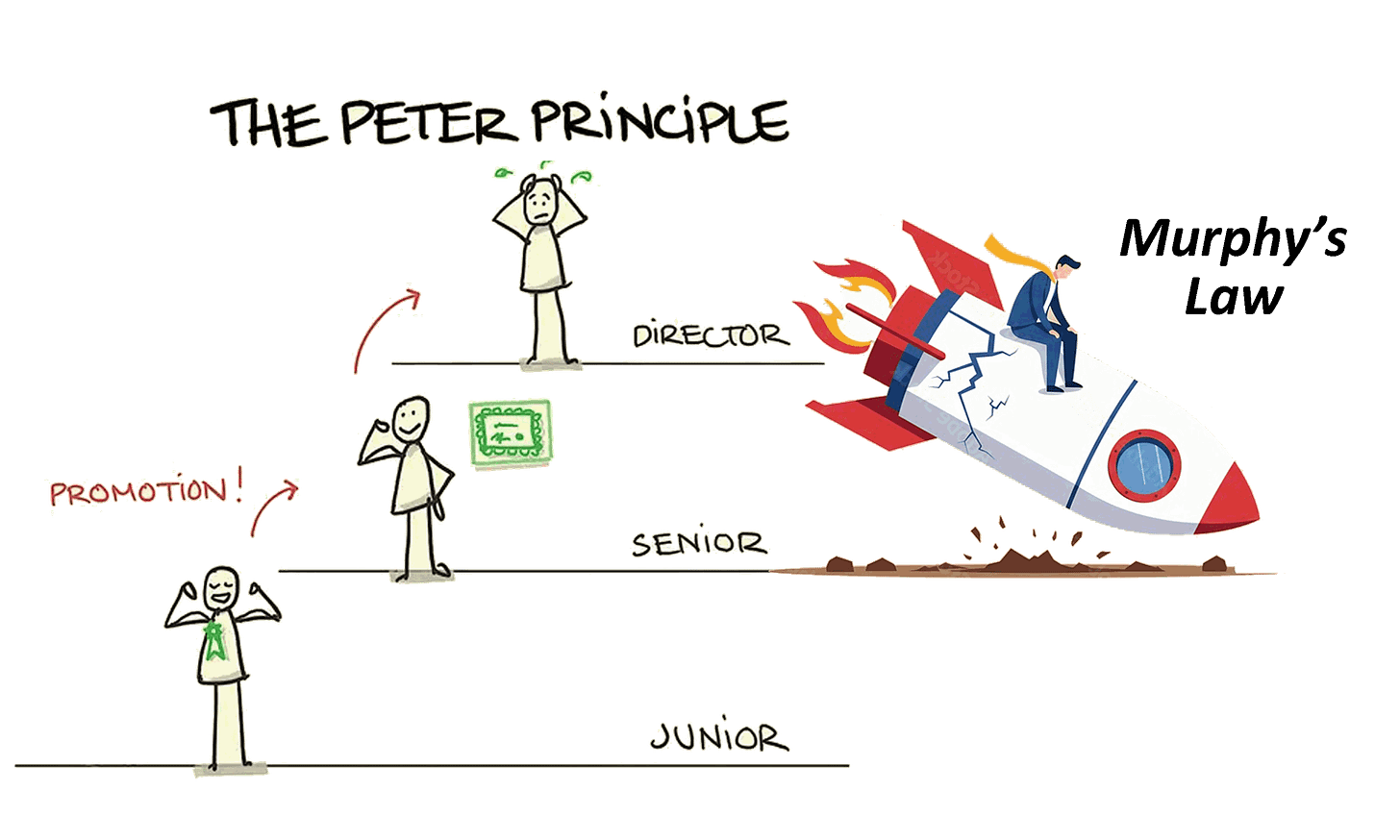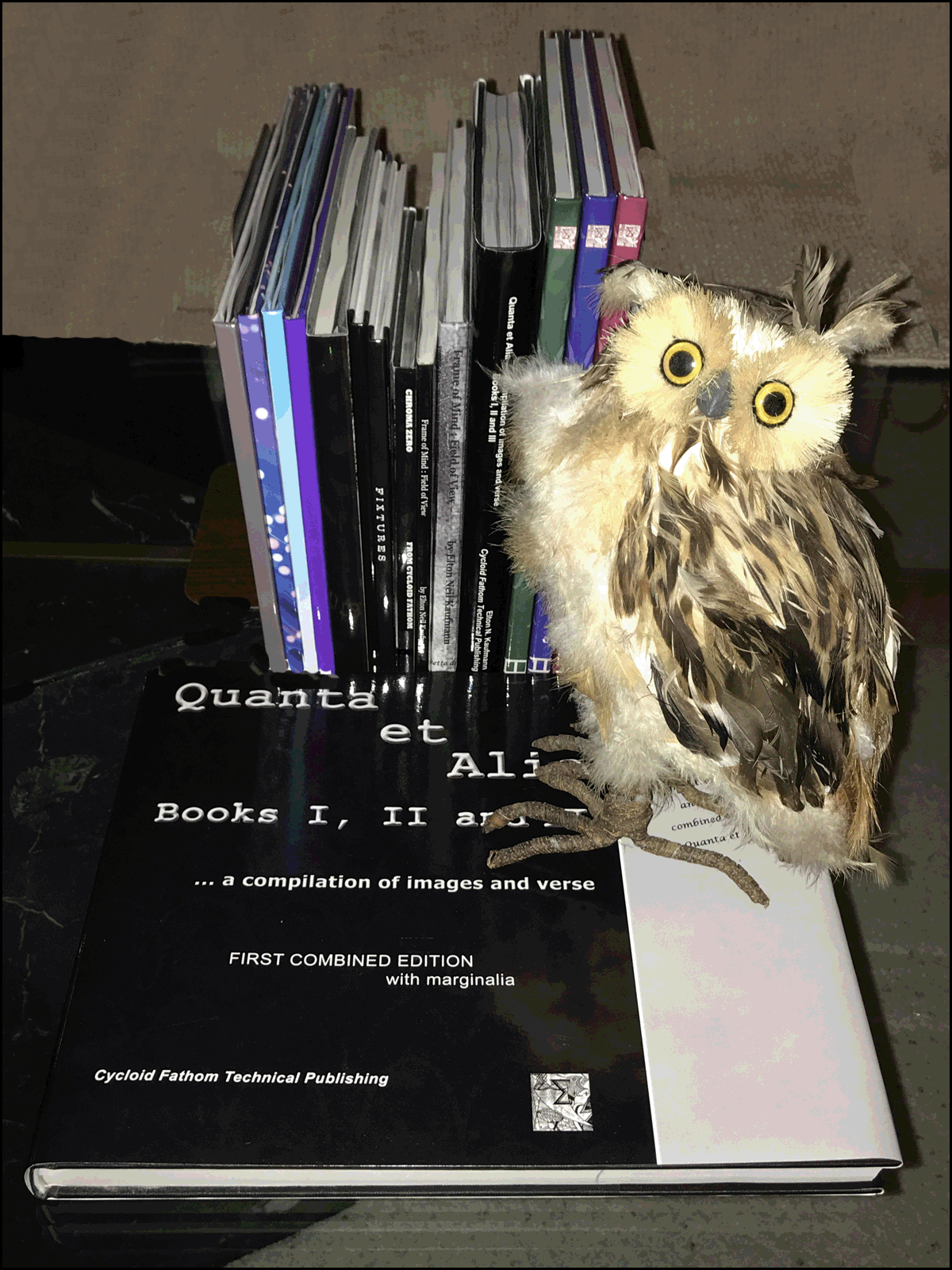Not these (yet)
"Plop, plop, fizz, fizz, oh what a relief it is" is not a cliché, it’s a popular advertising jingle for an antiacid tablet.[1]
“A Little Dab'll Do Ya” is also not a cliché, it’s a popular advertising phrase from a jingle for a hair grooming cream.[2]
But they could become clichés because expressions that capture our attention (we’d say go viral today) become sayings, then idioms, and then maxims, with a good chance of being overused into cliché status with no connection to the products for which they were originally composed. Irony and sarcasm have their place too. The now discontinued slogan, “Fair and Balanced” that originally touted the quality of the news coverage delivered by a major US television network is now used sarcastically to deride and satirize instances of biased reporting. Seems like a fair and balanced way to create a cliché, despite its use in that way generating unsuccessful trademark lawsuits.[3]
An overview*
"No good cliché goes unpunished." They are canned for insertion into everyday interactions. Brevity and pithiness is their intention. They are accused of being trite banal platitudes. Clichés pepper our dialogue for better or worse. I say better! We are happy to stipulate that many have already appeared in Ruminations and I dare say many more are in our future. A random list of uncritically selected clichés could be reviewed here with praise for the insight some provide and snarky critiques of those that seem lazy, unhelpful, and condescending. But it’s more interesting to ask, “Why do they arise in normal communication in the first place?” Now, “that’s the sixty-four-thousand-dollar question.”[4] Here’s “A word to the wise.” Their overuse betrays a lack of imagination and originality. Remember, “Familiarity breeds contempt.” To my mind, their best use is when the expected version is bent for humor or criticism, such as when “blood, sweat, and tears” becomes “blood, sweat, and beers.” In this one, the implied reward and celebration at the end of the toil seems optimistic, does it not? A rhyming substitution is the art, apparently. “The devil is in the details” becoming “The devil is in the retails” is another good case.
Avoidance is the most likely rationale for their use. They convey an idea in shorthand that, if dealt with substantively, would require an extended, perhaps pedagogical, exposition or a deep delving into emotions and history and desires, fulfilled or otherwise. It is safer to toss off a cliché and move on to the next topic, lest a speaker’s expertise is seen wanting or an audience squirms with discomfort and fatigue. In writing about them, we need to remember not to let the “perfect be the enemy of the good.” It is enough to ensure that the bad is the enemy of the good!
We are not alone
English is not the only tongue that has witticisms to offer. For example, the English “Nothing ventured, nothing gained” has an analogue en Francaise, “Qui onques rien n'enprist riens n'achieva.” The origin of some of our clichés can plausibly be traced to non-English sources. An interesting example is the apparent phonetic appropriation of the Greek κατά δόξα (kata doxa) which means “contrary to experience or belief” but which may have given us the “cats and dogs” of heavy rain.
An understandable transliteration of “to beat around the bush” in German is "Um den heißen Brei herumreden" literally meaning "To talk around the hot porridge." But sometimes the sense of the idiom is reversed as in "A rolling stone gathers no moss" becoming “Wer rastet, der rostet” literally meaning "He who rests, rusts."
Asia is not exempt. One of my favorites from Japan is “Saru mo ki kara ochiru” meaning "Even monkeys fall from trees," a way to remind us that we can all make mistakes. Another is “Hana yori dango” meaning “Dumplings rather than flowers” that reminds us to be practical.
And, as we predict that something is quite unlikely by saying “when pigs fly” an equally picturesque expression from a Russan speaker would be, “когда рак на горе свистнет” meaning "when a crayfish whistles on a mountain."
It sounds right, but it’s wrong
This one bothers me. When hearing and therefore learning a cliché over many years, only to hear it “butchered” today, I grimace. “To set foot” has become “To step foot” which to me is far too literal. When navigating “Uncharted territory” we care less that they are also “Unchartered territory,” whatever that means. “For all intents and purposes” becoming “for all intensive purposes” is the “Last straw.” Not the “straw that broke the camel’s back” as we have no camels here, but we sympathize. Even single words get messed up. When tenets become tenants, they should pay rent. One that offends my grad school training and later vocation and was common in the Bush (II) presidency is nuclear becoming nuculer.** Leaving words out can be a problem too. If “The proof is in the pudding” tells investigators where to look for evidence, we are in trouble. “The proof of the pudding is in the eating” makes more sense to me. Getting this one right should be a “piece of cake.”
Sound also helps: Some clichés rely on sound very much like a poem does. For it to roll off the tongue in a sing-song way, alliteration is required. “Grass is greener” and “Safe than sorry” are two typical cases. Another poetic device that creeps into the world of clichés is assonance as in “An ounce of prevention is worth a pound of cure” that sports two instances of repeated vowel sounds. I have no doubt that the impact and value of the cliché for an audience, despite it being an overused idiom, is helped by its poetic resonance.
Whence cometh the cliché
We have already mentioned purported origins for a few. Many clichés’ origins are not really known but we can find guesses in online searches. Most often, the cited original phrase has been truncated and reworded in some fashion by the time it arrives here from centuries ago. Whether the attribution lands on a Socratic, Aristotelian, or Churchillian prophetic proverb, the authors are long gone but if they were here they might well be perplexed if not piqued at hearing their wisdom chided and misused.
Feelings generate clichés in abundance. When we’re sad we are “Down in the Dumps.” We are told that “Dumps” comes from a fictional melancholic King Dumpos of Egypt -- as good an attribution as any. When we’re very happy we are “On top of the World” or “Over the Moon.” True origins are uncertain, but they parallel the adventures of Yuri Gagarin and Gherman Titov on Vostoks 1 and 2, respectively, and John Glenn on Friendship 7 followed a few years later by Neil Armstrong, Edwin "Buzz" Aldrin, and Michael Collins on Apollo 11’s Command Module Columbia. Absent a better story, I like this made-up “Space-Race” version.
“Mutually Assured Destruction” is a frightening cliché that grew out of our Cold War nuclear deterrence strategy (see our prior post, The Nuclear Dilemma, 17 March 2025) which had the quite meaningful self-characterizing acronym, MAD, for us to ponder. Although apparently a successful strategy at the time, it has now been overtaken by the wider proliferation of the nuclear threat and we await the next cliché that reflects a new and we hope successful strategy. A nuclear disarmament and non-proliferation candidate is “Trust, but Verify” that was popularized by US President Ronald Reagan who borrowed it from the original rhyming Russian version, доверяй, но проверяйa (romanized as doveryay, no proveryay).
Laws and principles: They are not clichés per se but have the same effect when we appeal to such rules and observations as “Murphy’s Law” and “The Peter Principle.” They imply that “What can go wrong, will go wrong” and that “We rise to our level of incompetence.” Fortunately, Murphy’s predictions often don’t come true. Unfortunately, we have an egregious example today of an extreme breaking of Peter’s plateauing thesis when we see that a leader can rise so far beyond any remnant of competence as to make the label “incompetence” a catastrophic understatement.
Exclamations and interjections: Oddities of language like the exclamatory “Ah Ha!” or the interjection “You don’t say!” are not legitimate clichés because they don’t really express even a trite platitude. They are more or less hiccups or belches reacting to a new fact or fiction. Tone of voice and facial expression when the second one is uttered reveal whether it is a sincere or skeptical comeback. Our friends in Japan often hear a polite “Ah so desu ka" (あそうですか) meaning "Oh, is that so?" or "Oh, I see." Before a more culturally sensitive cinema arose, such non-English phrases were repeated with an embarrassing frequency to only stereotype the characters who were portrayed, often by American actors. As insensitive as that habit was, we might conclude that the repetitive use in context did qualify some of these phrases as clichés.
And “that’s the long and the short of it”
Not much more to say about the common cliché. It is a ubiquitous creature, underfoot at every turn of phrase. But I have concluded, having now given the topic more thought than many other equally deserving topics, that it is a necessity of speech serving many purposes. Brevity for an eye-rolling audience to be sure, but also giving us a succinctly stated notion that capsulizes in a way that sticks with the listener when lengthier diatribes do not.
* A concession: As there is nothing new to say about clichés, we can only write (regurgitate) the oft-repeated trivialities and obvious intonations of others, thus conferring upon this post the status of “cliche in prose,” i.e., a self-referential cliché about clichés. I leave it to the reader to decide whether we should label it a “Busman’s Holiday” or “Bringing Coals to Newcastle.”
** Malapropisms are often the explanation or excuse for word substitutions.
Credits: Peter Principle cartoon is from https://sketchplanations.com/the-peter-principle. Rocket Crash Cartoon is from Adobe Stock #1379359958.
The Three Wise Men image is from openAI.com’s DALL-E image generator.
[1] The jingle from a 1976 ad is copyrighted and owned by the makers of the antacid Alka-Seltzer.
[2] The phrase is a trademark associated with a 1953 ad for the hair grooming product Brylcreem.
[3] https://www.rcfp.org/franken-can-be-fair-and-balanced-fox-parody/
[4] The phrase "that's the sixty-four-thousand-dollar question" originates from a popular American primetime TV game show from 1955 to 1958, The $64,000 Question, where the top prize was $64,000.
Nota Bene: Others may ruminate differently. But be warned: In my case, seeing or hearing something quite trivial -- a saying, a store clerk’s mannerisms, or bad grammar on a food product’s label – triggers a stream-of-consciousness extrapolation toward grander notions and generalizations. That is what often happens in these posts. ADDENDUM: Those subscribers who have been here for a while will have noticed that at times Ruminations has veered into diatribes. I make no apology. I just want my readers to know that it’s quite intentional. When events come close to making the ‘blood boil,’ that discontent bubbles up here.
Disclaimer: Any and all opinions expressed here are my own at the time of writing with no expectation that they will hold beyond my next review of this article. Opinions are like a river, winding hither and yon, encountering obstacles and rapids, and suffering turbulent mixing of silts from its depths and detritus from its banks. But just as a river has its clear headwaters and a fertile delta, so do opinions, notwithstanding any intervening missteps and uncertainties.
Reminder: You can visit the Cycloid Fathom Technical Publishing website at cycloid-fathom.com and the gallery at cycloid-fathom.com/gallery.
Forthcoming posts (unless life intervenes)
Journals’ journey
…Write, read, archive, venerate, or erase
28 April 2025
Size matters
…Relativity: Solicitously Small or Badgeringly Big
5 May 2025
Touchy Topics -- #2
…Considering controversial concerns (Classification)
12 May 2025
The Night and our Knights
…Fighting the darkness
19 May 2025








